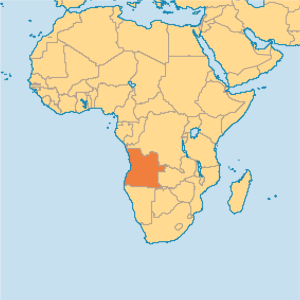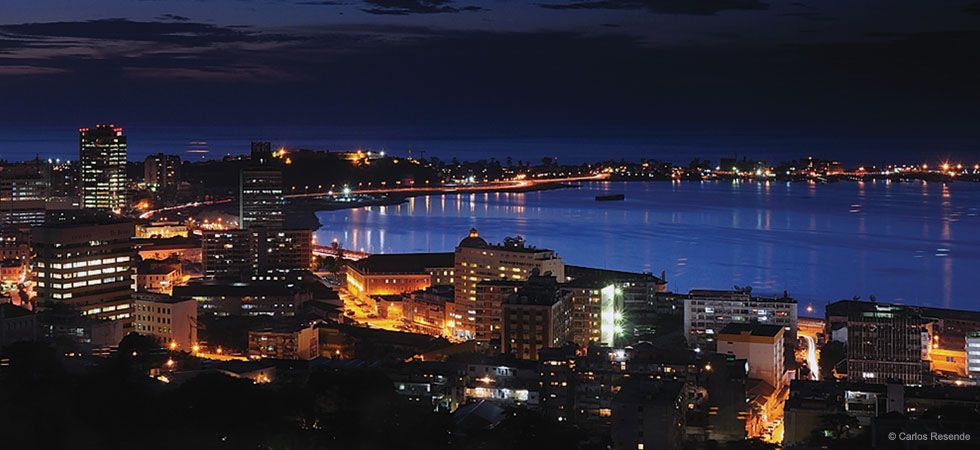The country is now sub-Saharan Africa’s third-largest economy, with much of that growth being powered by the country’s extensive oil reserves. But Angola is now looking to expand its horizons and is pumping money into health and educational schemes that will empower its population.
Angola is, potentially, one of the richest countries in Africa, due to its oil and other mineral reserves, to its hydroelectric resources, and to the great extensions of cultivable terrain, of which only a small part is being used. Before independence Angola was self-sufficient in foodstuffs. The country used to export bananas, coffee and sisal, of which production is now almost nonexistent. Due to the civil war agricultural production was drastically reduced. The country has dependent on international help and on foods imports since the middle 1980’s. Cattle breeding is another important resource.
Traditionally Angola was self-sufficient in agricultural products but nowadays it deals a wide range of products that under the right circumstances it could easily produce itself. Angola has abundant forest resources, especially in North Kwanza and Cabinda, with potential for wood production and transformation. The sea in Angola is very rich in fishing resources. The mining sector (petroleum, diamonds and other minerals) reveals strong growth perspectives that will certainly stimulate the advent of both upstream and downstream industries.
Areas for the establishment of industrial and agro-industrial development poles are identified in Luanda, Benguela, Huíla, Cabinda and Huambo. The Republic of Angola has a managerial class owner of a considerable patrimony, in sub-use conditions, in need of partnerships, especially the ones with easily assimilated technology. There is a significant public managerial sector in the bank branches, transportation, energy and water that might be privatised.
The year 2002 opened new perspectives, since a political-military stability has been registered, the macroeconomic atmosphere has become stable and re-configured with the liberalization of the trade of exchange value, the application of the new customs list, the reduction of airport fees, the beginning of the rehabilitation of the productive and social infrastructures program, among others. The following programs were also planned for the year 2003: the replacement and consolidation of the administration of the State, the continuation of humanitarian assistance to the population, the continuity of the application of measures according to the state of the market, previously adjusted with the International Monetary Fund and World Bank, the start of the Integrated Program of Productive Re-launch, in order to consolidate the macroeconomic stability of the country, reduce the population’s difficulties and decrease significantly the unemployment indexes. Angola was identified in 1999 as the first recipient country of direct foreign investment, according to UNCTAD-“WORLD INVESTMENT REPORT”, unfortunately mostly in the oil sector.
 To pay for such reforms, it has been seeking new opportunities for foreign investment as it exploits its vast natural resources that lie under the ground. A nationwide attempt to map diamond, copper and gemstone reserves is under way, while a new charter that cuts red tape and relaxes ownership laws has been introduced to entice businesses from abroad.
To pay for such reforms, it has been seeking new opportunities for foreign investment as it exploits its vast natural resources that lie under the ground. A nationwide attempt to map diamond, copper and gemstone reserves is under way, while a new charter that cuts red tape and relaxes ownership laws has been introduced to entice businesses from abroad.
Education systems, especially at primary and secondary level, are being targeted, and the country’s healthcare system is also being developed to provide a more comprehensive service.
Elsewhere, the Integrated Municipal Programme for Rural Development and Combating Poverty, established in all municipalities in 2012, has become the country’s biggest social inclusion programme, while help-to-work schemes have already assisted over 200,000 families. It all points to a nation that has emerged from conflict through steady economic growth and is now increasingly seeking social reform, which Mr dos Santos says are interlinked.
















